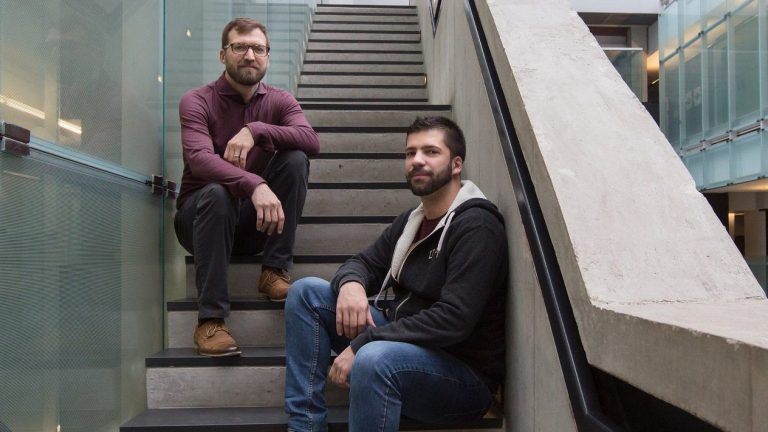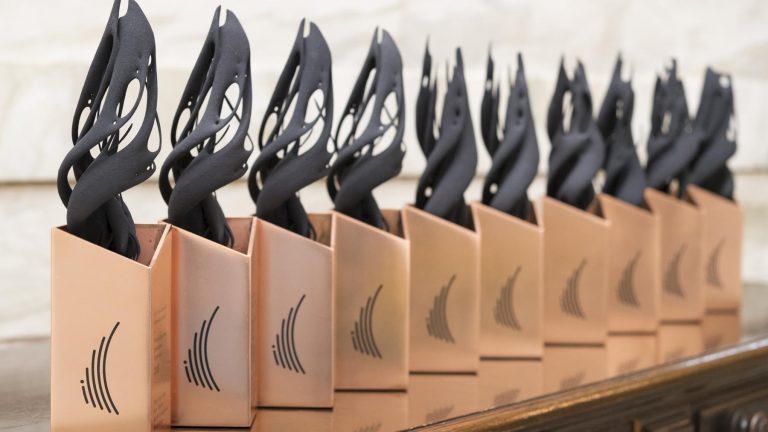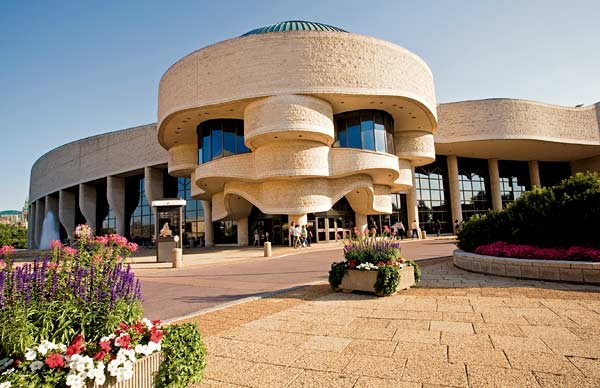
The Culture of Innovation breakfast celebrates the 2019 Governor General’s Innovation Awards Laureates.
The 2019 Laureates are innovators who are helping to inspire future generations of Canadian innovators are:
Dr. Joelle Pineau
Montreal, Quebec
Dr. Pineau is a leader in the innovative application of Artificial Intelligence (AI) and machine learning to personalized and robot-assisted health care. She pioneered the development of algorithms to handle a special set of mathematical problems, known as partially observable Markov decision processes. These problems involve decision-making techniques where multiple choices are available over time to a decision maker, and where the agent lacks full knowledge of its context. The ability to handle these decision processes is at the core of machine learning, and her work stands as a foundation for several AI advances seen today.
Nominated by NSERC
SmartICE
The SmartICE team, represented by Trevor Bell, Shelly Elverum, Jenny Mosesie, Shawna Dicker
St. John’s, Newfoundland
Sea ice is not only a hunting platform and travel highway, it has for centuries defined Inuit culture and identity. Now, because of climate change, Inuit are increasingly concerned about their travel safety and the impacts that declining ice conditions are having on community wellbeing. Specially designed technologies such as the SmartQAMUTIK and SmartBUOY empower communities to monitor their own ice trails. For the first time such technology is being produced for Inuit communities by Inuit youth in Inuit Nunangat (Inuit homeland in Canada) and Inuit Qaujimajatuqangit (Inuit societal values and knowledge) is being combined with technical training for Inuit to operate and manage SmartICE services in their communities.
Nominated by the Federation for Humanities and Social Sciences
Sweet Dreams Social Impact Bond
June Draude, Eric Dillon, Walter Mah, Donald Meikle
Saskatoon, Saskatchewan
In virtually all cases, forcibly removing children from the family home because of child welfare concerns causes trauma to the child and the parent. To find an alternative solution to taking children into care, EGADZ Saskatoon Downtown Youth Center, community-minded investors and the Government of Saskatchewan came together to create Sweet Dreams, using an innovative financing tool – a social impact bond – a first for Canada. Sweet Dreams provides a supported living environment where the family is kept intact, and mothers are provided the tools needed to safely parent their children in the short, medium and long term. In the past five years, 53 out of 54 children remain with their Mom.
Nominated by Innovation Saskatchewan
Jad Saliba
Waterloo, Ontario
Jad Saliba, Founder and Chief Technology Officer, started Magnet Forensics to address the growing challenge police agencies face in the collection, analysis and reporting of digital evidence when investigating crimes such as human trafficking, child sexual exploitation and terrorism. In addition to consolidating hundreds of critical data types from smartphones, computers, IoT devices and cloud services, Magnet Forensics’ tools leverage artificial intelligence, advanced search techniques, and data visualization to help investigators uncover crucial digital evidence to convict or exonerate suspects. Their innovative products have become the global standard in digital forensics. They have contributed to the tangible reduction of police case backlogs, allowing victims of crime and the justice system see more timely resolutions.
Nominated by Communitech
Dr. Garnette Sutherland
Calgary, Alberta
Towards improving patient care, Dr. Garnette Sutherland developed a high field intraoperative magnetic resonance (MR) system that provides surgeons with exquisitely detailed, 3-D MR images during an operation. This innovative technology has been used in over 40,000 neurosurgical patients worldwide. Within this environment, an image-guided robotic system called neuroArm was created, the world’s first robot capable of performing neurosurgery on a patient inside an MR imaging machine. neuroArm continues to be used in patients at Foothills Medical Centre in Calgary. The technology promises to make surgeries less invasive and more standardized, thereby improving outcome and reducing healthcare cost.
Nominated by Universities Canada
Chief Dr. Ronald Ignace (Stsmel’cqen) and Dr. Marianne Ignace (Gulḵiihlgad)
Burnaby, British Columbia
Developed over several decades, Chief Dr. Ronald Ignace and Dr. Marianne Ignace have created the model of collaborative approaches to research in and with Indigenous people and communities. It is a new approach to knowledge mobilization and the development of methods that deeply respects and furthers understanding of Indigenous peoples’ connection with land and language. Their work successfully combined advocating and practising the deployment of western scientific knowledge in dialogue with the wisdom and knowledge of past and present elders.
Nominated by Universities Canada




